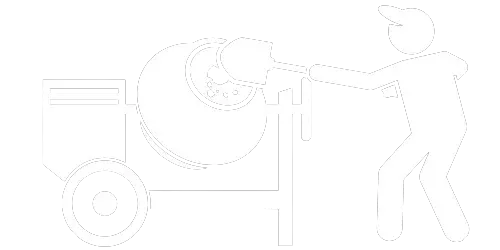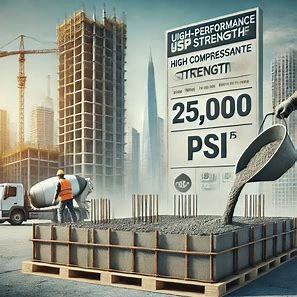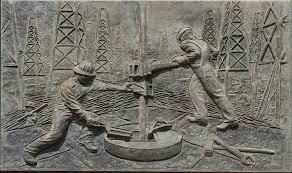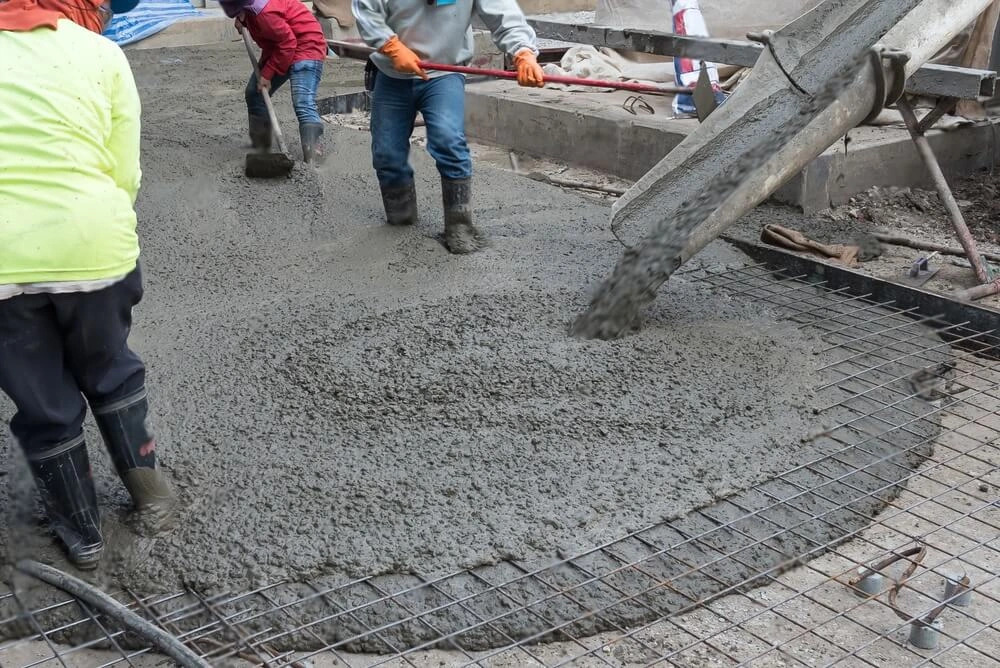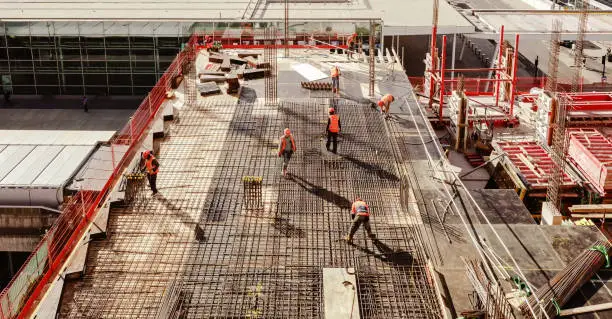Advantages and Disadvantages of Concrete
Among the most popular types of building materials, concrete occupies one of the leading positions due to the proper performance of its physical and mechanical characteristics.
No matter if you are building a house for living, an office or business building, or repairing a driveway in Las Vegas, concrete has been one of the most popular options for many years.
But like any other material it also has its strengths and weaknesses. Thus, in this article, I will introduce some advantages and disadvantages of concrete and use the information obtained in the analysis of construction projects in Las Vegas, USA.
Advantages and Disadvantages of Concrete Floors
Concrete flooring is among some of the most preferred types of flooring for business and household use.
As highlighted above, they have the following advantages but at the same time consist of their disadvantages. Here are the pros and cons:
Pros of Concrete Floors
Durability: Such floors are highly resistant to foot traffic and movements of furniture that would easily damage other types of flooring.
Low Maintenance:
Compared to wooden or carpet floors these floors are very easy to maintain and hardly demand any washing or polishing.
Cost-Effective:
In most commercial concrete projects concrete is cheaper than most floors in that it costs less to use.
Cons of Concrete Floors
Cold Surface:
The use of concrete floors may make the interior cold especially if winter is being experienced, and this would call for other supplementary sources of heating.
Hardness:
There are advantages such as durability while there is a disadvantage in that concrete is rather hard such that it makes one tired when standing or walking on it for a long time.
To repair concrete floors, we offer all types of concrete repair services which make it strong and durable in Las Vegas.
What is Concrete?
Concrete therefore can be defined as cement stone which is made of coarse aggregate, fine aggregate, cement and water.
The mixture pieces up when it hardens over time and this is attributed to the process known as hydration.
Concrete has a long history with construction: the Roman empire has used it, Nowadays concrete is used in the construction of various buildings and structures.
It has become evident that how concrete is placed, prepared , mixed in its place and arronded after it is poured and how it cures is fundamental to its strength.
Disadvantages of Commercial Concrete
Heavy Weight: Labour cost is affected by concrete because it is heavier than other building materials and its movement from one place to another and during construction work is costly.
Slow Curing Time: Concrete requires some time to harden to make it easier to work with, a process that can cost time on a project.
The Function of Concrete in Home Enhancement
Concrete is also widely used in home improvement, particularly in construction of driveway, patio or foundation. It provides reasonable rigidity and ornamental aspects for practical use.
Let us find out why concrete is so popular in home projects.
Concrete can come in almost any shape, texture, and colour which is why people love to use it as patios, outside living areas, and internal flooring.
Concrete Patios
Hiring professional concrete patios service for homeowners who want the most out of their money means they get value for their money especially when installing them in Las Vegas where concrete holds out well under very high temperatures.
To view more patio design tips and get our concrete patio services, click on our concrete patio service tab.
Drainage Concrete Solutions at Las Vegas
Concrete material is also extended to approach drainage solutions, especially for the dedicated zones in Las Vegas where the control of the stormwater is important.
Advantages of Concrete in Drainage
Precast drainage systems are rigid, can withstand different weather conditions, and offer low maintenance.
Poured Concrete Drainage
For drainage system installation this type of blockage is fit since it produces more efficiency compared to other blockage types which cause havoc in buildings and roads through water breakages.
Comparing concrete and asphalt paving for driveway construction.
The decision to choose between a concrete or an asphalt driveway is usually one of the toughest decisions a homeowner will have to make. Each can be advantageous or disadvantageous depending on the specific situation, however which will be beneficial to Las Vegas?
Durability Comparison
Of the two, concrete is proved to be more durable for instance the extremely hot and dry weather of Las Vegas. Asphalt pavement, on the other hand, needs a higher frequency maintenance work or repair works in most cases.
Cost Comparison
Asphalt first costs are lower than concrete; however, it possesses higher costs in the long run because of its shorter durability and high maintenance costs.
To read the full report regarding this, please do not hesitate to read our comparison between concrete and asphalt driveway.
Anticipated Gains of Concrete
Concrete has several advantages and here when it comes to commercial concrete projects in Las Vegas. These benefits include:
Strength and Durability
Concrete is capable of resisting unfavourable conditions such as heat and rainfall that are experienced in Las Vegas.
Versatility
Concrete can also be made to form nearly any shape, whether it be for a driveway or for an office building.
Sustainability
The current concrete manufacturing can use sustainable substitutes and therefore has a potential of countering climate change through construction.
The Benefits of Concrete for Driveways
This type of driveway is popular in most regions of Las Vegas, and for a very good reason at that. The pros of using concrete for driveways include:
Long Lifespan
If well maintained, a concrete driveway can serve the homeowner for many years without requiring any serious attention.
Heat Resistance
Concrete does not absorb heat, but bakes it in the space and since Las Vegas falls under such regions we recommend this type of roofing.
Aesthetic Versatility
Concrete can also be painted to selected colours and textural finish which might correspond to the design of your property.
To know more about our services on driveway concrete installation and maintenance in Las Vegas, please visit our service page.
The Disadvantages of Concrete Driveways
Despite its many advantages, concrete driveways also have some downsides, such as:
Cracking Over Time
Changes in temperatures and humidity are also in the ability to cause cracks on concrete driveways.
Initial Cost
Nevertheless, they have higher initial costs as compared to other surfaces, such as asphalt; however, when several years have passed, the need to replace deteriorated material is no longer necessary.
Las Vegas Commercial Concrete: Pros and Cons
In large civil construction projects, concrete can be said to be widely used. Here are its pros and cons in a commercial setting:

FAQs About Concrete
1. What are the main advantages of concrete?
- Concrete is known for its durability, low maintenance, and cost-effectiveness. It is highly resistant to wear and tear, making it ideal for both residential and commercial applications. It also offers versatility in design, allowing it to be molded into nearly any shape, size, or finish.
2. What are the disadvantages of concrete?
- Some disadvantages of concrete include its hardness, which can make it uncomfortable to stand on for long periods, and its cold surface, especially during winter. It also has a slow curing time and can crack over time due to temperature fluctuations.
3. Why is concrete a good material for driveways?
- Concrete driveways are long-lasting, heat-resistant, and low-maintenance. They can withstand the extreme heat and dry weather of places like Las Vegas, and they can be customized with various colors and finishes to match your property’s aesthetic.
4. How does concrete compare to asphalt for driveways?
- Concrete is generally more durable and requires less maintenance over time than asphalt. While asphalt has a lower initial cost, it needs more frequent repairs and maintenance, making concrete a more cost-effective option in the long run.
5. Can concrete be used for outdoor projects in Las Vegas?
- Yes, concrete is highly effective in outdoor projects in Las Vegas. Its durability makes it an excellent choice for patios, driveways, and drainage systems, all of which need to withstand the intense heat and dry conditions in the region.
6. Is concrete environmentally friendly?
- Concrete can be environmentally friendly if manufactured using sustainable materials. The construction industry is also exploring ways to reduce concrete’s environmental impact, including the use of recycled aggregates and more energy-efficient production methods.
7. How long does concrete last?
- Concrete can last for decades with proper care and maintenance. For instance, a well-maintained concrete driveway or foundation can last 30 years or more, making it a durable and reliable option for both residential and commercial uses.
8. Does concrete require a lot of maintenance?
- Concrete requires very little maintenance compared to other materials like wood or carpet. It needs occasional cleaning, and if cracks appear, they can be easily repaired to maintain its integrity.
Conclusion
Concrete is undeniably one of the most widely used materials in construction, offering a unique blend of strength, versatility, and cost-effectiveness. From residential projects such as driveways and patios to commercial and drainage systems in places like Las Vegas, concrete proves its value in diverse applications. While concrete comes with certain drawbacks, including its cold surface, slow curing time, and tendency to crack over time, its durability, low maintenance, and versatility make it a top choice for many construction projects.
Despite its disadvantages, concrete continues to be a crucial element in home improvement and large-scale commercial projects. With proper care and maintenance, concrete can serve for many years, making it a wise investment for both residential and commercial applications. As the industry advances, concrete solutions are evolving, offering sustainable and more durable options to meet the ever-growing demands of construction.
